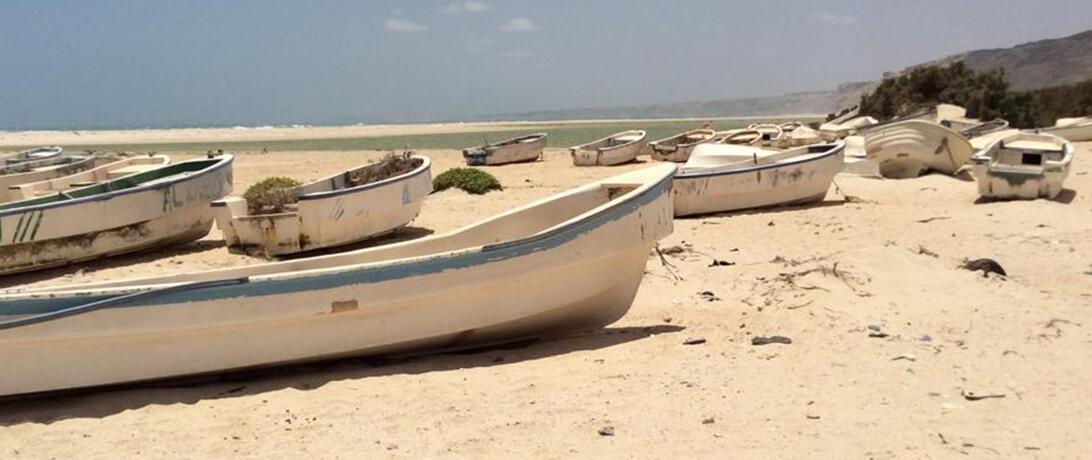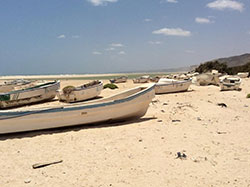
OEF Research’s sister program, Oceans Beyond Piracy, can draw reference to the central theme in Ambassador Swanee Hunt’s work: gender parity.
 In this interview, filmed during the One Earth Future Forum in Aspen, Colorado in October 2014, Ambassador Swanee Hunt describes how her personal experiences of taking on the responsibility of being a US Ambassador, as well as being the daughter of a wildly successful oil tycoon and early ‘wildcatter’, have shaped her psyche and belief that major change can happen if we ask ourselves what needs to be done, rather than asking if it can be done. Quoting Nelson Mandela: “It always seems impossible until it is done,” Ambassador Hunt echoes the overall message of the OEF Forum: it is within our grasp to put an end to mass killings by armies in this century.
In this interview, filmed during the One Earth Future Forum in Aspen, Colorado in October 2014, Ambassador Swanee Hunt describes how her personal experiences of taking on the responsibility of being a US Ambassador, as well as being the daughter of a wildly successful oil tycoon and early ‘wildcatter’, have shaped her psyche and belief that major change can happen if we ask ourselves what needs to be done, rather than asking if it can be done. Quoting Nelson Mandela: “It always seems impossible until it is done,” Ambassador Hunt echoes the overall message of the OEF Forum: it is within our grasp to put an end to mass killings by armies in this century.
A central theme in Ambassador Hunt’s philanthropic work and in her role as an Ambassador has been gender parity, especially as a means to end war and rebuild societies, but also to alleviate poverty and other human suffering. She has written numerous book and articles focusing on the importance of including women, as well as other relevant stakeholders, at the decision-making tables, whether it is in negotiating peace agreements, rebuilding post-conflict societies or ensuring a more just society with political parity. In this interview she provides real world examples of the powerful and positive effects that women can have in promoting peace and reconciliation.
 Within my own sphere of work, I can also make reference to these powerful and positive effects of women’s actions. OEF Research's sister program Oceans Beyond Piracy has documented Somalia-based maritime piracy’s significant decline since its peak in 2011. The main causes of this decline are almost as well known: international naval operations, industry self-protection and use of armed security teams, prosecution of pirates and capacity-building efforts in the region. Less well known, however, is the role that women have played in not only making piracy socially unacceptable, but actively ousting pirates from local communities. An example is the coastal town of Eyl. Once named the ‘Somali pirate capital’, the local community, led by women’s groups, traditional elders and religious leaders, ousted the pirates by refusing to do business with them and thereby cutting them off from vital supplies and social life. Now, female business owners are an important part of creating economic growth and stability, showing the importance of inclusiveness and the role of women.
Within my own sphere of work, I can also make reference to these powerful and positive effects of women’s actions. OEF Research's sister program Oceans Beyond Piracy has documented Somalia-based maritime piracy’s significant decline since its peak in 2011. The main causes of this decline are almost as well known: international naval operations, industry self-protection and use of armed security teams, prosecution of pirates and capacity-building efforts in the region. Less well known, however, is the role that women have played in not only making piracy socially unacceptable, but actively ousting pirates from local communities. An example is the coastal town of Eyl. Once named the ‘Somali pirate capital’, the local community, led by women’s groups, traditional elders and religious leaders, ousted the pirates by refusing to do business with them and thereby cutting them off from vital supplies and social life. Now, female business owners are an important part of creating economic growth and stability, showing the importance of inclusiveness and the role of women.
As Ambassador Hunt and women in Liberia, Rwanda, Somalia and Bosnia have shown: Building peace is not impossible, it just needs to be done!
Article Details
Published
Written by
Program
Content Type
Opinion & Insights